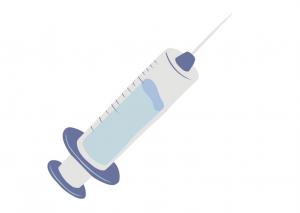Ethiopia conducts a reactive yellow fever vaccination campaign to protect communities around an affected district
A yellow fever vaccination campaign targeting 700 000 people in Southern Nations, Nationalities and Peoples (SNNP) and Oromia regions was conducted in November 2020, achieving 93% of the target. The campaign aimed to stop the spread of an outbreak that was first reported in Enor-Ener Woreda in Gurage Zone of SNNPR by vaccinating eligible age groups in 12 woredas (districts), one of them in Oromia, that were identified as potential epicenters of the outbreak. A first reactive campaign was conducted in 17 kebeles (sub-districts) of Enor-Ener in March 2020 when the outbreak occurred, bringing the outbreak quickly under control.
“As we all work together to respond to the global COVID-19 pandemic, WHO works with the Ethiopian Ministry of Health, the Ethiopian Public Health Institute and regional health bureaus to support continuation of essential health services like immunization and strengthen response to other health emergencies such as this yellow fever outbreak,” WHO Representative Dr Boureima Hama Sambo said during the response. “We must address all health issues and emergencies to protect the health of the Ethiopian people.”
Following reports of the first cases in March 2020, WHO surveillance officers and regional health bureau teams strengthened surveillance, including active case search. A total of 86 cases and 4 deaths were reported in this outbreak. WHO teams worked with regional, zonal and woreda health authorities to coordinate the response and train frontline workers. Job aids and case definitions were provided to health facilities and staff were coached onsite on case definition and management.
Health extension workers (HEWs) and woreda-level rapid response teams trained by WHO and the respective health bureaus went door-to-door in Enor-Ener and adjacent woredas to identify persons that meet the case definition for yellow fever and report to the next reporting level. Informed by the surveillance reports, the Ministry of Health’s Ethiopian Public Health Institute (EPHI) collaborated with WHO and other immunization partners to launch the campaign in the 12 high risk woredas in the two regions targeting populations aged 6 months to 50 years.
Health extension workers and volunteer vaccinators wore masks and maintained hand hygiene throughout the campaign, and reminded community members to wear masks and keep a safe distance from others to prevent the spread of COVID-19 during the campaign.
With a hesitant smile, Woinshet Bereda, a resident of Enor-Ener Woreda, commented, “When I first heard about the vaccination campaign, I wasn’t sure it would happen because I thought health workers wouldn’t want to work with us as they did in the past – you know, because of corona,” adding, “I am relieved that my family is now protected from this other disease. God bless the health workers for serving us with care at this risky time.”
WHO teams contributed to the campaign through planning, coordination, community outreach and supervision. Daily morning and evening meetings were held to evaluate progress and propose improvements, aiming at achieving high campaign quality.
The vaccines were provided by the Gavi the Vaccine Alliance, and the campaign was led by the Ethiopian Public Health Institute (EPHI) and regional health bureaus in collaboration with WHO, UNICEF and JSI’s Ethiopia Transform: Primary Health Care (USAID) project.
===
Media contacts:
Loza Mesfin Tesfaye
Senior Communications Officer
WHO Ethiopia
e-mail: tesfayel [at] who.int
phone: +251 911 144 194 (Direct, Whatsapp)
Alemtsehay Zergaw Gebremichael
Communications Officer
WHO Ethiopia
e-mail: gebremichaeila [at] who.int
phone: +251 911 174 593



